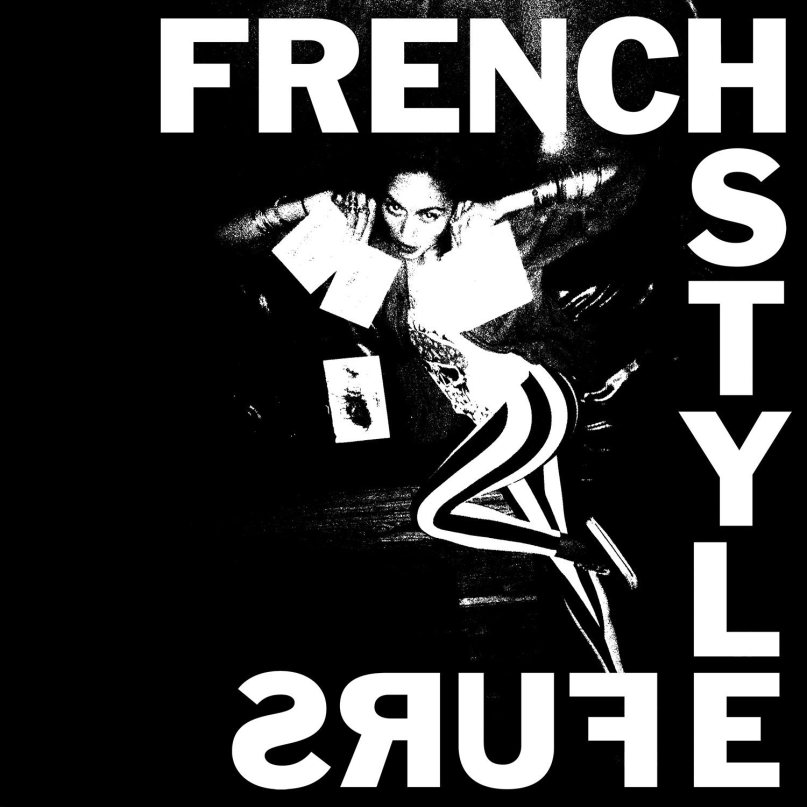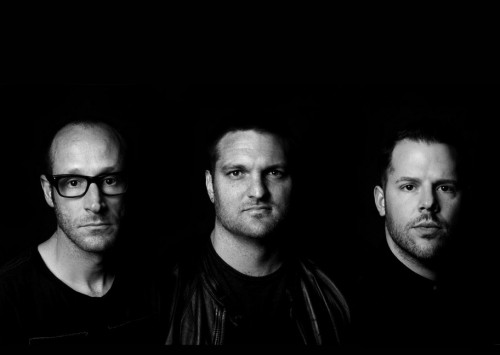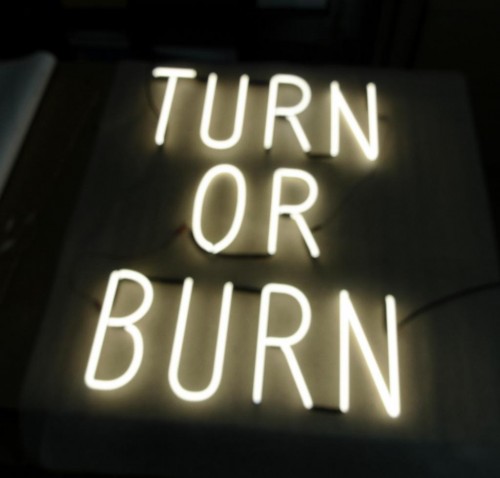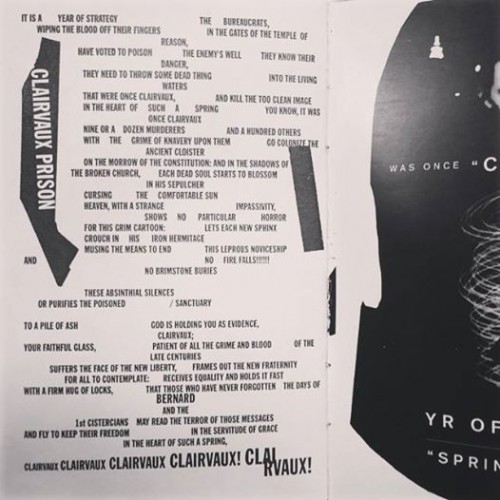
 On the heels of obsessing over Lana Del Rey’s Ultraviolence, Matthew Linder and I found another target for our obsession in French Style Fur’s Is Exotic Bait. The band is made from members of We Barbarians and Cold War Kids, and most of the lyrical content comes straight out of the poetry of Thomas Merton, a Trappist monk and mystic. Here are the results of a conversation surrounding one of the deepest albums we have heard in quite a while.
On the heels of obsessing over Lana Del Rey’s Ultraviolence, Matthew Linder and I found another target for our obsession in French Style Fur’s Is Exotic Bait. The band is made from members of We Barbarians and Cold War Kids, and most of the lyrical content comes straight out of the poetry of Thomas Merton, a Trappist monk and mystic. Here are the results of a conversation surrounding one of the deepest albums we have heard in quite a while.
Matt: So what did you think about “All the Way Down”?
Blake: That track is just so credal. I can’t ignore that reading. It was the first thing to come to my mind and the only thing I can interpret it by. “Descended into hell” (“all the way down”) and “rose again from the dead” (“got in my body, came right back out and rang my bell”) What did you think?
M: Initially, I took it as an exploration of the depths of human sin, but after listening to it a few more times, I came to the same conclusion that the song is about Christ descending into hell. That he has gone further down into hell than the devil to overcome hell’s dominion and Satan’s power.
B: I agree. Christ just went down further than any of us and “saw the root of all who believe” and ended up conquering it instead of being consumed by it like all of us would be. Within Protestant translations of the Apostle’s Creed, there is a discrepancy on whether he “descended into hell” or just “descended to the dead”. I always favored the former. This song I think affirms that translation.
M: I tend to lean towards the “descended into hell” translation also, especially in light of Revelation 1:18, where Jesus proclaims that he holds “the keys to death and Hades.” Then the music is so brash and in your face, like a shout of victory. I also love the almost cartoonish nod to how hell is often represented in metal, with a choir and haunting minor chords. There are, also, so many 80s bands I hear on this album as well. From Duran Duran, Depeche Mode, The Cure, Tears for Fears, and a bit of Talking Heads.
B: I found this album to be the perfect blend of 80s pop sensibility and the nature of true punk represented as well, but, then again, I am a huge fan of 80s music.
M: For instance, “World in My Bloodstream”, that guitar line feels like it was lifted straight from The Cure. Tears for Fears (one of my favorite 80s bands)… I heard their influence in “Solitary Life”. “Miami U R About 2 B Surprised” I think is genius in its use of an out-of-tune-saloon-style piano with a scratching-nails-on-a-chalkboard guitar as the bed for a song about the emptiness of the “good life”. Those choices heighten the sting of lyrics like: “you will find yourself sweetly insulted”, “a gourmet with a mouthful of seaweed”, “falling into hopeless spray”.
 B: I think you are spot on. Just that rust underneath a bright coat of paint. The facades we choose to live, lifting up our riches, talents, charisma, and personalities instead of recognizing the decay going on underneath it all. The musical elements definitely allude to that nagging rot.
B: I think you are spot on. Just that rust underneath a bright coat of paint. The facades we choose to live, lifting up our riches, talents, charisma, and personalities instead of recognizing the decay going on underneath it all. The musical elements definitely allude to that nagging rot.
M: To obtain that magical “good life”, requires a breakdown of loving your neighbor. As you advance up the rungs of the ladder there is often damage in your wake. Hurt people and even, at times, oppression of the least of these, which is fleshed out in the next track, “Ambassadors of General Electric”. A heavy-handed critique of what they view as corporate imperialism.
B: Which is interesting to me. There is this intriguing paradox when I read those lyrics. Merton was writing in a time when GE was a powerhouse, but perhaps it’s less so, now. I think that adds an interesting juxtaposition. It doesn’t change the heavy-handedness of the critique, but I think it widens the critique.
M: Moving from a social justice anthem to a down-tempo celebratory number about the announcement of Jesus’ birth to Mary is something to behold. God shows up in the midst of the injustice of the world to say to this people, “They are mine.” “Turn or Burn”, the ministry of John the Baptist, calling for repentance because the kingdom of God is here, in Christ. An offer given to both the American General Motor-types and the kids in the shacks.
B: Two elements of the faith are great equalizers: human depravity/our inability to fix it and salvation through Christ alone. Speaking of “Turn or Burn,” what did you think of the accompanying video?
[youtube=https://www.youtube.com/watch?v=ujL07uOeUI0&w=600]
M: I watched the video a few times. Two symbols are prominent, the cross, for “turn” and the cigarette, for “burn”. Fairly straightforward. But then there are her surroundings. When in the “burn” state she is inside, lying on her bed with only her bra on, moving around and restless. But in her “turn” state she is outside covered-up (long-sleeved sweater, large brimmed hat), standing but immovable. Then you have the whole business of the street, a clear night when “turned” but fogged-over for the woman inside.
When she looks out the window at the foggy street, it is at that moment that I think she is being called to turn, even though she can’t see clearly where she is going. She has to trust in the song’s announcement of salvation through Christ and heed the call.
At the beginning of the video, then, is the woman after taking that step of “turning” and on the journey towards the cross and redemption. But interestingly enough, in both her “burn” and “turn” states she is wearing a cross, Jesus was always with her. However, in “turned” mode I am not sure why she is so expressionless.
B: Her quivering lips and tears at the end are interesting. Like there was an intense emotional toll in the “turn” and one that is not altogether “happy” but maybe a deeper element of joy. Maybe that is a sign that the “turn” on the surface does not change her immediately but an inward turmoil that comes outside over a period of time. Not many have a Paul conversion experience.
M: I like that take on it. What did you think of “Man the Master”?
B: I think it speaks directly to this conception of a culturally-defined understanding of manliness that defines every man. Stuff like “all time winner with guns and vehicles”, “umpire of the big skin game”, “father and cocky number one boy”, “the master”, and always loving the “fun loving spread eagle that restores”. All of which are things that define a cultural understanding of manhood: warriors, handymen or car lovers, sports enthusiasts, fathers who suffocate their kids with expectations and the excelsior man of the household and, maybe especially, sex fiends.
 All of that is tantamount to a collective understanding of personhood for men in our country. AND YET, there are parts of the songs that speak of the fiery underside, “each his own question”. This self-defining sense of bravery instead of an exterior definition of bravery and manhood which we try to attain and not create. I don’t know, what did you think?
All of that is tantamount to a collective understanding of personhood for men in our country. AND YET, there are parts of the songs that speak of the fiery underside, “each his own question”. This self-defining sense of bravery instead of an exterior definition of bravery and manhood which we try to attain and not create. I don’t know, what did you think?
M: I think you are spot-on. It speaks to all the versions of manliness within and outside of the church that in the end are fragile shells of life-fulfilling happiness. There is no eternal joy in those pursuits, and yet we long for those things to answer our question. The burning one that drives us towards manhood as defined by the world and not through our identity in Christ.
B: I saw you posted “Christmas Card” on Facebook, so I assume it struck you somehow?
M: This song is noisy, take-no-prisoners, in-your-face punk rock. A fitting landscape for God stepping down from heaven, being born of woman and becoming a man. Christ’s birth wasn’t a silent night but a celebration of all the hosts of heaven, shepherds in the fields, a mother and a stepfather. On top of that Jesus came into the world like all of us do, crying and wailing loudly. I love how the words look forward to Jesus’ purpose—“his is our lamb, our holocaust” and how Jesus can “conquer the winter of our hateful century”.
Also, I love the Christmas pageant recitation a la Linus of the shepherds’ reaction to the Messiah of the world being born in a stable, whom they kneel down to and “look upon their life”. Then the call to look at the baby, with the hopes of the world laid on him and offer a “dim adoring light of your belief”. Not a full-blown belief but the spark of belief in seeing the majesty that is Christ in his humble beginnings.
B: So, so good. The “look upon their life” line kills me every time. And isn’t that the way we should look at Christ? His life is ours now, given freely to us at great cost to him, no less. I love your reflections on that song…
M: Shivers run through me each time I hear that line. He is our life. There is no other. As Peter said, “To whom shall we go? You have the words of eternal life.” That brings us to the end of this incredible album.
B: Yeah, “Clairvaux Prison” struck me because it sounds quintessentially like Cold War Kids. And I love their sound.
 M: I would agree that this song is the most like Cold War Kids’ sound. The imagery in this song is so rich that I found myself easily picturing these scenes of life, captivity and death. It was also a nice touch to include a choir when he sings “heaven” and with Nathan Willett declaiming/chanting the verse as if he were preaching.
M: I would agree that this song is the most like Cold War Kids’ sound. The imagery in this song is so rich that I found myself easily picturing these scenes of life, captivity and death. It was also a nice touch to include a choir when he sings “heaven” and with Nathan Willett declaiming/chanting the verse as if he were preaching.
B: Clairvaux Prison was a prison in France built on the old site where Clairvaux Abbey used to be. A prison replacing a monastery. War, crime and retribution overtaking mercy, forgiveness and love.
M: Merton, also, was a scholar of Bernard of Clairvaux, who inhabited that monastery in the 12th century. Luther and Calvin were influenced by Bernard’s writings, given his Augustinian focus on humanity’s sin and God’s total deliverance.
B: The song does not feel “positive”, but like it is in process. Mimicking, maybe, the same process of Christ renewing the darkness of the world and the heaviness of the death. It finds resolution “in the heart of spring.”
M: The “temple of reason” has won out the day while the church lies crumbled, broken, and in ashes. And isn’t this how a lot of Christians feel in the West? That Christ’s church is a mere shadow of its former self and government is replacing that which once the church supplied? As Merton in mid-20th century France grieved over the loss of Clarivaux and the Church proper in France, we too grieve. But Christ’s church is not sustained in buildings or political influence but in freedom, grace and finding resolution “in the heart of such a spring”. The living water found in Christ and experienced in places like Clairvaux or our local church.
B: Which brings up why this was the perfect song to end on. A hope for a new creation, new living waters running through the bride of Christ. And all of it summed up in a slow pop-punk ballad.
[youtube=https://www.youtube.com/watch?v=cNmhagtphr0&w=600]

COMMENTS
Leave a Reply












